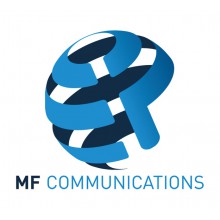Attitudes to traditional telephone numbers are changing
Will landline telephone numbers become a thing of the past?
Compared with six years ago, Britons spend half as much time on the landline, yet they use ten times more mobile data.
With the increasing ownership of smartphones, there is becoming less of a need for traditional landlines and telephone numbers, according to recent research by Ofcom. Remembering phone numbers – or even needing to dial them – is becoming a thing of the past.
In 2012, the UK made a total of 103 billion minutes of landline calls, but in 2017 that fell to just 54 billion.
Over the same period, mobile call minutes increased steadily from 132.1 billion to 148.6 billion. In addition, there has been a rise in the average person’s monthly mobile data use from 0.2 gigabytes to 1.9 gigabytes.
Ofcom’s research confirms younger people prefer to use messaging services, such as WhatsApp, rather than use their phones to talk.
“Calling someone is a bit daunting. It’s much easier and quicker to WhatsApp my friends. If I have to call a company, I’ll always try to use webchat if it’s available.” 18-year-old participant.
By contrast, older people still prefer having a conversation.
“I prefer to speak to a person. You can get a better understanding.” 68-year-old participant.
Liz Greenberg, Head of Numbering at Ofcom, said: “Some of us can remember a time when we stored phone numbers in our head, rather than our mobile. But the way we use and feel about telephone numbers is changing.”
Young people now rely on contact numbers stored in their phones when they do ring friends and family. It’s more common to click on a name or web link on your mobile to call a number, rather than manually dial it.
“I don’t need to remember numbers”. 22-year-old participant.
Understanding area codes
There are 1.3 billion landline telephone numbers in the UK, of which 400 million are currently allocated to telecoms operators.
Early area codes corresponded to the first two letters of the location and when they were first created in the 1950s, had particular significance on a telephone dial. Numbers corresponded to two-letter identifiers, such as AB (22) for Aberdeen. So today, Aberdeen’s area code is ‘01224’ (01AB4).
Due to increased demand for numbers, the numbering system has changed several times over the years and there are currently 610 area codes in the UK.
Ofcom’s study found that younger people bear very little significance towards area codes and where they represent. Many don’t even know that area codes have geographic significance, often mistaking them for other numbers and associating them with nuisance callers or call centres.
Older people, on the other hand, tend to recognise where area codes come from and trust the codes local to them. They consider area codes helpful and reassuring when searching for local businesses, as well as when making and receiving calls.
As part of the research, people were asked how they would feel about area codes losing their geographic meaning. Some younger people liked the idea of having greater freedom to own a number ‘for life’, seeing a number as part of a person’s identity. But older people are strongly against losing geographic meaning from area codes.
Changes in technology could revolutionise how phone numbers are used.
It is likely to become more common for calls to be made over broadband, rather than traditional telephone lines. Broadband-based call technology does not need area codes to tell it where to send a call, unlike a traditional phone network.
Ofcom has already begun looking at how operators could manage UK landline telephone numbers more effectively, including the potential to use blockchain technology. This could make it quicker and easier for landline customers to switch providers while keeping their number, and potentially reduce nuisance calls.
Using Inbound Numbers for your business
Inbound numbers allow you to manage your incoming calls more effectively by routing calls directly to the right person. Customer care and talking to the correct person are two factors given to improved good customer service and increased closing of sales.
Using memorable inbound phone numbers for your advertising campaigns will also increase your return on investment, allowing potential customers to memorise your number more than a mobile or local business number.
Furthermore, unlike standard business phone numbers, non-geographic numbers (NGNs), such as those beginning with 0800/0808, are not assigned to a particular geographic location. They are free of charge from all operators in the UK including mobiles and can be routed to any landline or mobile.
MF Communications can easily and quickly update your inbound numbers for you, giving your business full control and flexibility of incoming call management.
For more information on setting up inbound numbers with MF Communications, contact us, or call 01892 514687 to speak to one of our telecoms advisers.


